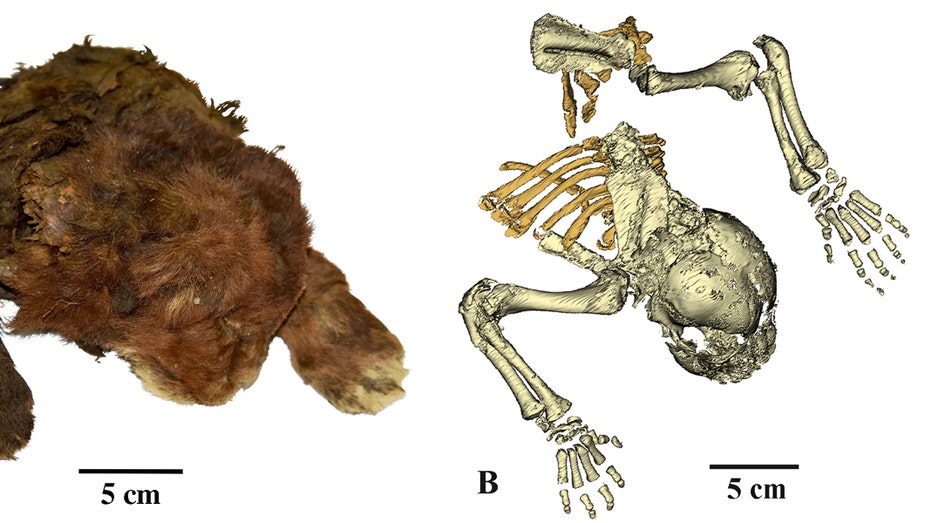- by foxnews
- 08 Apr 2025
Scientists study 'very rare' frozen remains of 35,000-year-old saber-toothed cub
Scientists studied a three-week-old saber-toothed cub dating back 35,000 that had been left almost perfectly intact, thanks to its frozen condition.

A mummified saber-toothed cub of a catlike animal dating back 35,000 years was left almost perfectly preserved in Siberia's permafrost.
The discovery of frozen remains from the Late Pleistocene period is "very rare," according to the published research, though most discovered in Russia lie in the Indigirka River basin, the authors note.
"The mummy body is covered with short, thick, soft, dark brown fur with hair about 20-30 mm long," the authors wrote in the published research, also pointing out that the fur that was located on the back and neck of the cub was longer than the hair that was found on the legs.
The head of the mummy was also left well-preserved, down to its chest, front arms and paws.
The study of this find wasn't just a unique opportunity for scientists, it also provided first-of-its kind research.
"For the first time in the history of paleontology, the appearance of an extinct mammal that has no analogues in the modern fauna has been studied," the authors of the study explained.
The scientists determined that the cub had died at about three weeks old. It was identified by the authors of the study as belonging to the species Homotherium latidens and had many differentiations from a modern lion cub of a similar age.
Scientists also worked in their research to find out how the extinct species was able to survive through frigid temperatures.
Large contributors to their survival were the shape of the large paws and absence of carpal pads. Scientists believe these elements helped them get through the snow.
In recent years, there have been other ancient animals found in Siberian permafrost.
For example, in 2021, a mummified wolf was discovered that dated back over 44,000 years, Live Science reported in June 2024.
- by foxnews
- descember 09, 2016
Ancient settlement reveals remains of 1,800-year-old dog, baffling experts: 'Preserved quite well'
Archaeologists have recently unearthed the remarkably well-preserved remains of a dog from ancient Rome, shedding light on the widespread practice of ritual sacrifice in antiquity.
read more


